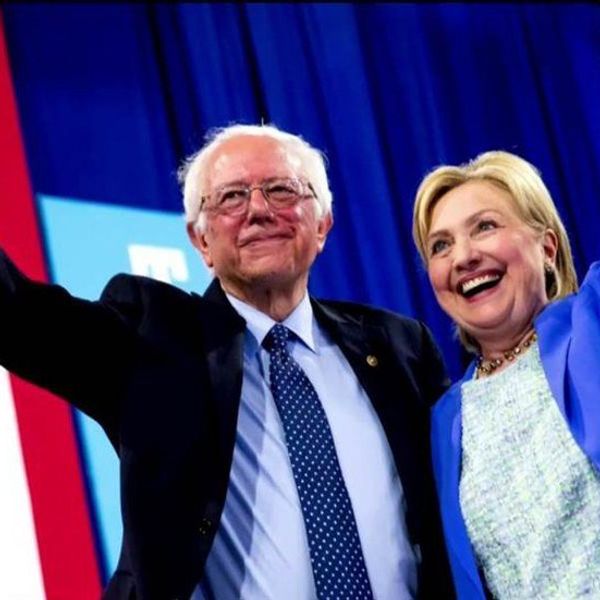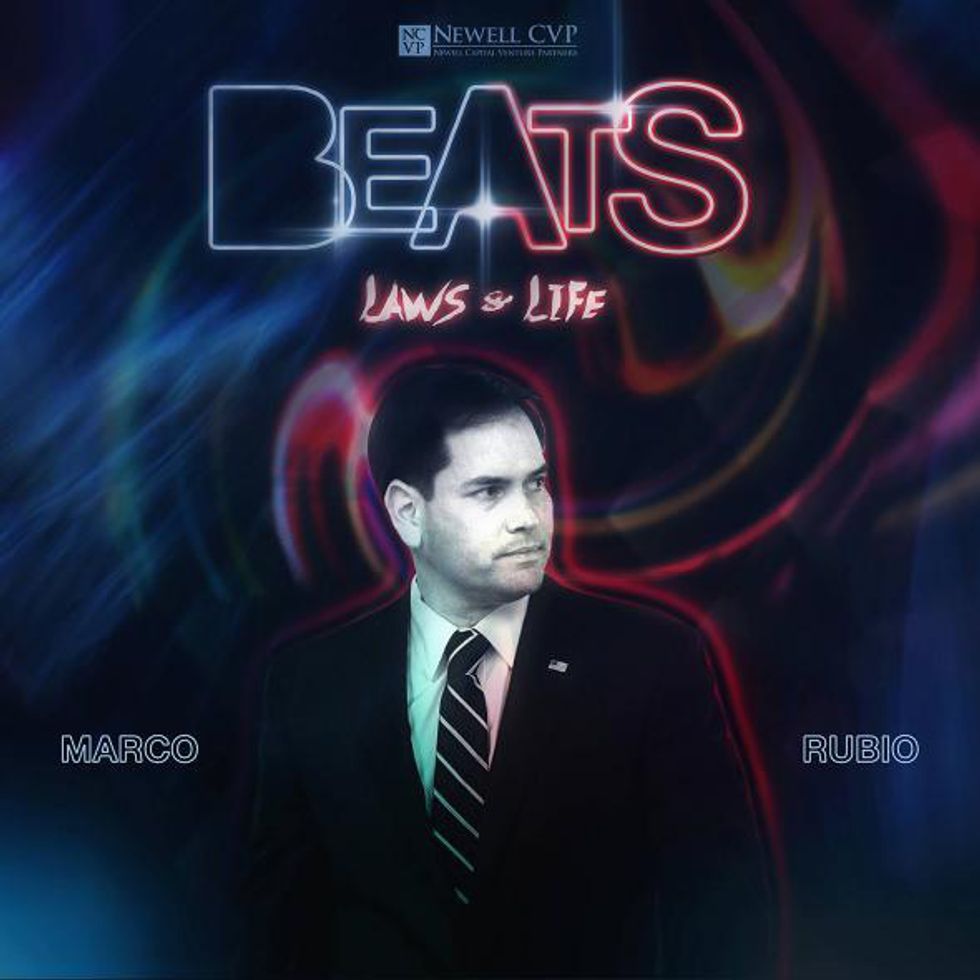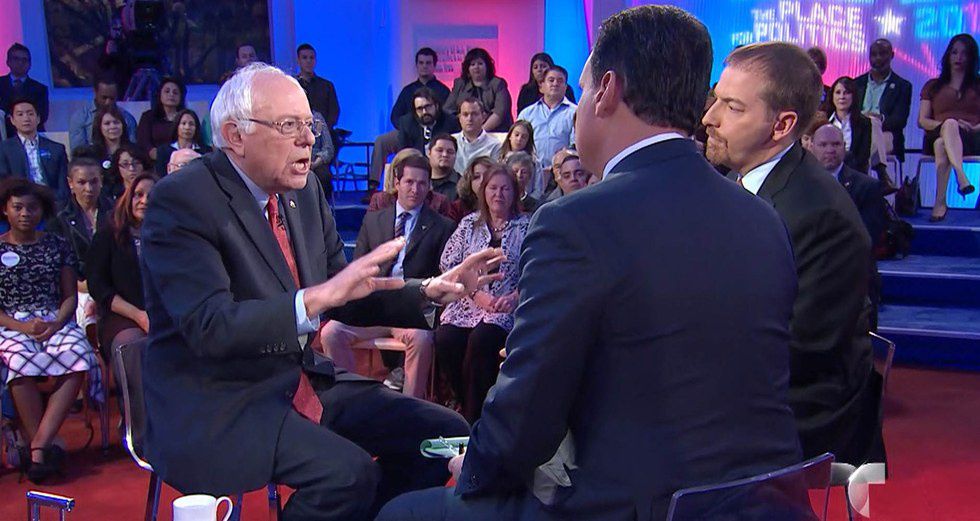While watching the Presidential Town Halls this past Wednesday and Thursday, I noticed some jarring differences between the way that the Democratic and Republican candidates were treated by the moderators. These differences become suspicious, especially when one considers who owns the networks that hold these debates and town halls, as well as the structure of Town Halls. When Democratic candidates are being attacked for the policy decisions they have made in their career, but every one of the Republican candidates get asked about their favorite music, the media’s bias towards Republicans becomes much clearer.
Let’s begin by briefly talking about the structure of the Town Hall. During a Presidential Town Hall, the moderator asks questions to the candidate before opening it to the audience. The audience are full of prospective voters from area of the election taking place. These voters come in with questions to ask the candidates and then the producer, or organizer, of the Town Hall will choose audience members to ask their question to the candidate. The candidate then answers those questions and the audience member or moderator may ask follow-up questions to the candidate. The issue of concern in the 3 Town Halls that have taken place leading up to the primary election and caucuses in Nevada and South Carolina, is the way in which the moderator asks questions, as well as how the producer or organizer of the Town Hall chooses which audience member to ask questions to the candidate.
So what kinds of questions were asked to the Republican candidates? As I have mentioned earlier, all of the candidates were asked, in some variation, “What kind of music do you like to listen to?” Not only that, but Anderson Cooper, the moderator of the Republican Town Hall, asked follow-up questions on this hard-hitting topic; for example, Cooper asked Marco Rubio, in response to Rubio's favorite music being EDM, “Have you ever been to a rave?” But it doesn’t stop there, five of the six candidates were asked about what they do in their free time. Trump was asked about fast-food, Cruz was asked about late-night television and guilty pleasure shows, Dr. Carson talked about pool, Rubio spoke about the NFL and his boots, and Jeb Bush talked about reading and spending time with his granddaughters. And while that’s very sweet and humanizing, the Democrats were never given a chance to answer those kinds of questions.
While the Republicans were answering those types of questions, every question that Bernie Sanders or Hillary Clinton answered were tough, policy driven questions. Questions like one asked by Jose Diaz-Balart, one of the two moderators for the Democratic Town Hall: “You're a democratic socialist. When -- when some Latinos hear those words, they think Venezuela and Cuba, Chavez and the Castro brothers, 57 years of dictatorship. Talk to the people who escaped those regimes today and hear you use those words and wonder exactly… what you have in mind.” And this one asked by Chuck Todd, “a common complaint in those European systems has to do with wait times for treatment… How do you propose in your Medicare-for-all system to not have Americans have to deal with rationing of care?” Clinton was asked similar questions regarding her use of “political rhetoric” and how that made her seem untrustworthy.
Now to some, this discrepancy between questions may seem irrelevant, the Democratic candidates just happened to get more tough questions than the Republicans got. But what people may not see is that, because the softer questions went to the Republicans and harder questions went to the Democrats, the Democratic candidates were unfairly framed in a negative way. For example, Republican candidate Ted Cruz answeredquestions about how much he loves his family and his wife, and how he will sing to her over the phone, and therefore is seen as a more like-able candidate; however, Democratic candidate Hillary Clinton defended herself against attacks regarding her untrustworthiness, uses of political rhetoric and ties to large corporations. She is seen as guilty by association to those questions; no matter how effectively she defended herself, she still had to defend herself. Similarly with Bernie Sanders, he is painted as a socialist dictator, who wants to make government bigger, punish the rich, and tax everyone; but only because he had to defend himself all night from questions that were aimed at attacking him.
Why is it that there was such a difference between these two party’s Town Halls? Based on the framing of the questions against the Democratic candidates and the lack of tough questions for the Republican candidates, I argue that the corporations which own the networks that the Town Halls were held on, CNN (owned by Time Warner) and MSNBC (owned by Comcast), are biased towards the Republicans’ messages about less market regulation and less taxes on the rich - because those policies means more money for them, but don’t like the Democrats’ messages about creating more regulation and more taxes on the rich - because those policies means less money. And because of that, they want the Republicans to look better, so they tell the producers not to ask them as many, if any, tough questions as they ask the Democrats. It backs Democrats into a corner and forces him or her to defend themselves all night instead of attacking; which makes the candidate look guilty and weak in comparison to the Republicans.
I am not asking for Town Halls, or Debates between the candidates to stop, because they are truly helpful for undecided voters. But in order for these events to be productive, it must be fair for both parties. CNN, MSNBC and any other news organization must remove their corporate bias against the Democrats from their moderating and producing processes so that audiences can see the candidates for their stances on the issues that voters care about, and not for the political spin that corporations want to place on the candidates.
























